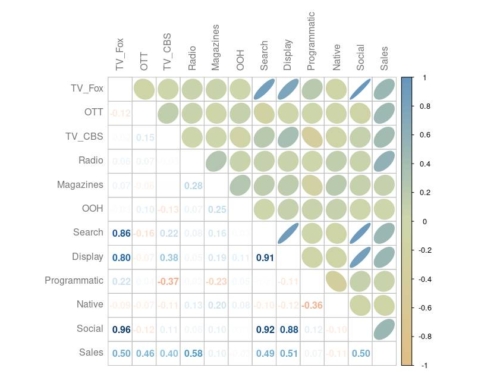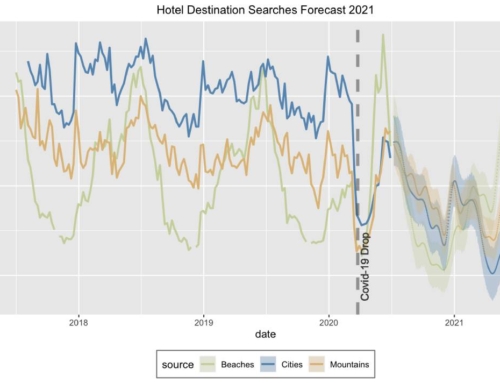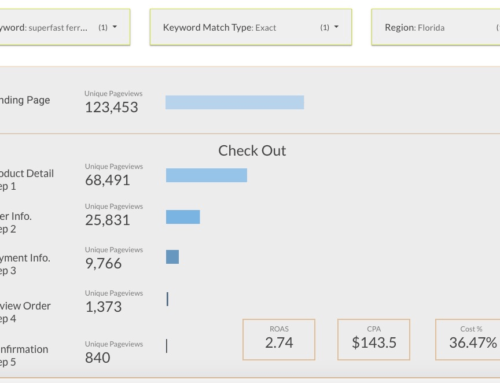Big Data analysis is a fantastic discipline that allows me to extract and analyze thousands of comments using R, a programming language designed for statistical analysis. With “Text Mining,” I can gain valuable insights from sentiments expressed in relation to specific topics or personalities.
These sentiments can help identify business opportunities, make strategic decisions, improve products and procedures, and much more.
In this particular case, I utilized the R language to extract information from numerous Twitter comments related to Apple products, specifically the Apple Watch and Airpods. By applying Sentiment Analysis algorithms, I was able to draw meaningful insights from the data. It’s worth noting that there are other potential sources for analyzing these types of products, such as forum comments, reviews, other social networks, and Google searches.
Understanding the sentiments expressed in these comments can uncover valuable insights for identifying business opportunities, making informed decisions, and improving products and procedures.
To begin, I extracted tweets containing the phrase “Apple Watch” from the United States over the past six months. Next, I cleaned and pre-processed the data to facilitate analysis and visualization. This involved removing unnecessary prepositions, punctuations, and stop words like “the,” “a,” “an,” etc. Before conducting the sentiment analysis, I visualized the text with a word cloud specifically for “Apple Watch.”
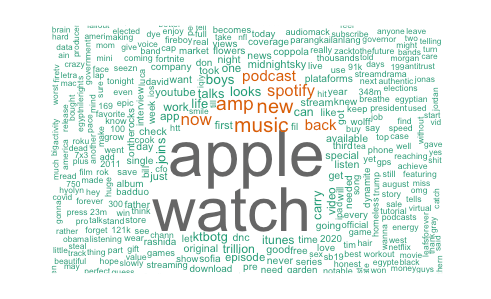
The word cloud reveals correlated words such as music, amp, Spotify, podcast, midnightsky, etc. Surprisingly, this product seems to have a strong association with music. Now, let’s explore people’s sentiments about the Apple Watch. The sentiment chart displayed below was created using the “sentiment” package in R, which applies a statistical approach to select relevant terms based on an exogenous response variable.
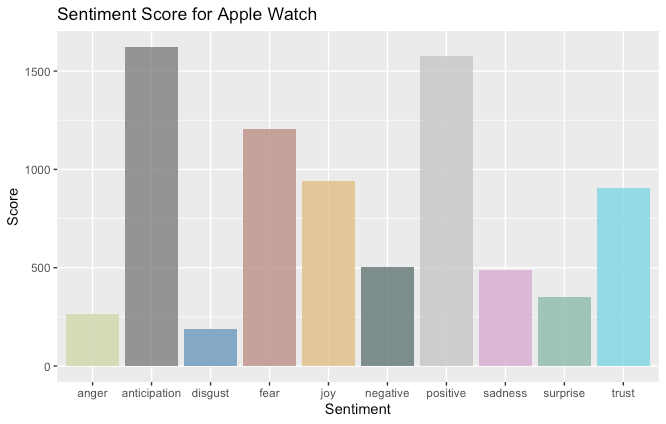
Isn’t it cool? The chart displays 10 sentiment variables, with five being positive and five negative. It appears that the Apple Watch has received a predominantly positive sentiment. To provide a meaningful comparison, it would be beneficial to repeat this process with another product. Let’s do the same analysis for “Airpods,” starting with its word cloud:
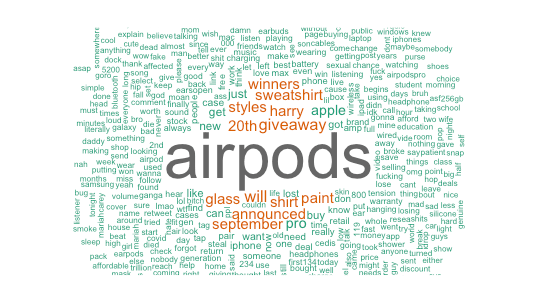
The word cloud for “Airpods” doesn’t reveal significant insights in terms of correlated words. However, we can observe mentions related to a popular giveaway campaign on Twitter, including terms like giveaway, winners, announced, etc. Now, let’s delve into the sentiment analysis for “Airpods”:
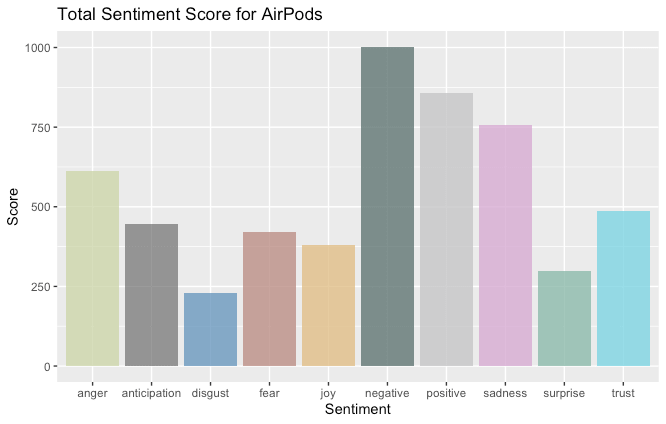
At first glance, it is evident that “Airpods” has received a higher number of negative mentions compared to the Apple Watch. However, to gain a comprehensive understanding, it would be helpful to compare each sentiment variable:
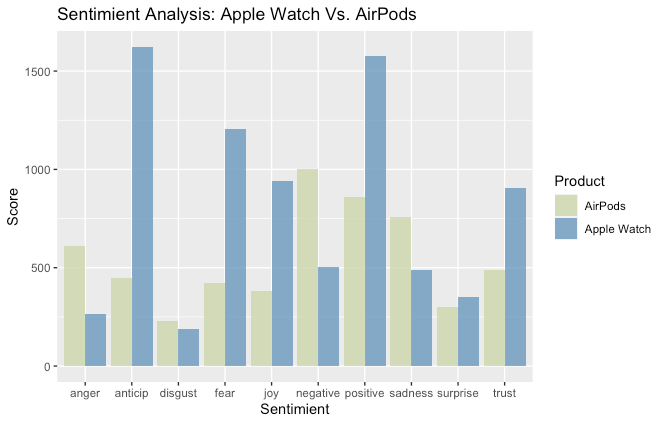
This comparison provides a clearer view of how the Apple Watch is perceived more favorably than Airpods over the past year. In addition to these insights, it would also be valuable to use this data to compare competitor products or analyze how these sentiment values have evolved over time.


